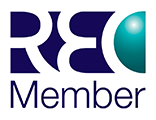Why Early Socialisation Matters

Socialisation is one of the most critical aspects of raising a happy, confident, and well-adjusted dog. For young puppies, the early weeks and months of life are a crucial window of opportunity for learning about the world around them. During this sensitive period—generally between 3 and 16 weeks of age—puppies are especially receptive to new experiences, people, animals, and environments. How a puppy is socialised during this time can shape its behaviour and temperament for life – no pressure puppy parents!
Why Early Socialisation Matters
- Builds Confidence:
Introducing a puppy to a wide range of stimuli—such as people of all ages, other dogs, different surfaces, sounds, and environments—helps build confidence. Puppies that are not socialised early may grow up to be fearful, aggressive or anxious in unfamiliar situations. - Prevents Behavioural Issues:
Many common behavioural problems, such as fear-based aggression, excessive barking, and anxiety, can stem from poor or insufficient socialisation. Puppies that are well-socialised are more likely to be calm, friendly, and well-behaved in a variety of settings. - Encourages Healthy Interactions with Other Dogs and People:
A well-socialised puppy learns how to read and respond to social cues from other dogs and people. This helps prevent misunderstandings or inappropriate behaviour in social settings and lays the groundwork for positive relationships. - Reduces Stress in New Situations:
Dogs frequently face new situations throughout their lives—vet visits, car rides, busy parks, loud noises, and strangers. Socialising puppies early makes them more adaptable, reducing their stress and making these experiences smoother for both the dog and owner. - Makes Training Easier:
Puppies who are accustomed to different environments and stimuli tend to be more focused and responsive during training. They are less distracted or overwhelmed, which helps with the learning process.
How to Socialise a Puppy Effectively
- Start Early, But Safely:
Begin socialisation as soon as it’s safe, keeping in mind vaccination schedules. Until a puppy is fully vaccinated, avoid high-risk areas, but don’t delay socialisation altogether—invite friends over, carry your puppy in public places, and arrange controlled introductions with healthy, vaccinated dogs. - Make It Positive:
Use treats, toys, and praise to create positive associations with new experiences. If a puppy seems nervous, never force them—gentle encouragement works best. - Expose to Variety:
Include a wide range of people (kids, adults, people in hats or with beards), animals, environments (parks, sidewalks, homes), and sounds (traffic, vacuum, doorbells) in your puppy’s experiences. - Take Puppy Classes:
Enrolling in a reputable puppy socialisation class provides a controlled environment for learning how to interact with others and build foundational skills.
Long-Term Benefits
The effort put into socialising a puppy pays off in the long run. Socialised dogs are more likely to be relaxed, sociable, and enjoyable companions. They cope better with travel, grooming, vet visits, and life changes. In contrast, poorly socialised dogs are at higher risk of fear-based behaviours, which can lead to rehoming or even euthanasia in very extreme cases.
Conclusion
Socialisation is not a luxury—it’s a necessity for the healthy emotional and behavioural development of a puppy. The early weeks go by quickly, but their impact lasts a lifetime. By investing time and care into socialising your puppy properly, you’re giving them the best chance to thrive in a complex human-dominated world!
Looking for a new Veterinary Surgeon role?
If you’re looking for a new role, we can help! We have many roles across the UK, so feel free to contact us to find out more. Complete our contact form and we’ll be in touch to discuss roles in your area! Complete our form here.












